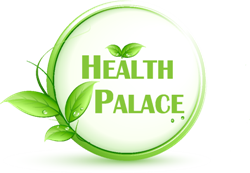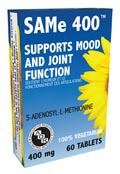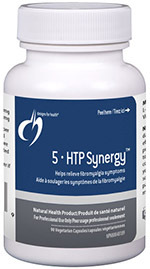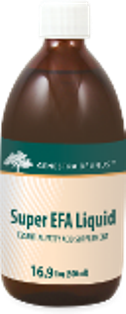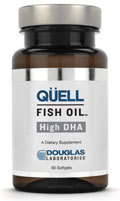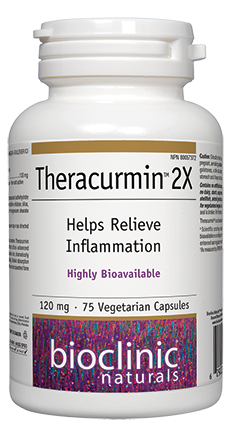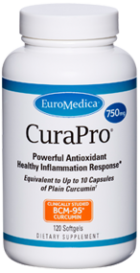Natural Alternatives To Manage Depression & Winter Blues
Relieve From Depression Symptoms & Winter Blues With The Help of Natural Medicines

While the standard approach to depression is antidepressant drugs, there are many ever-rising concerns regarding their side effects. On many occasions during treatment, the effectiveness of the drugs fades and often patients are left to deal with their condition and side effects. Therefore, more practitioners and patients are looking for safer yet effective alternative treatments. A recent compelling number of studies and evidence indicate that nutritional and natural therapies are successful in preventing and managing mood disorders. This article has gathered information on some of the very well-studied natural alternatives for mood disorders.
Amino Acid SAME ( S-Adenosylmethionine) is safe and as effective as some anti-depressant drugs without their unwanted side effects. SAME participates in the synthesis of mood-enhancing compounds in the brain as well as many other biochemical functions such as DNA repair. SAME is found in every tissue and fluid of the body. Based on SAME's vast involvement in multiple biochemical pathways, scientists suggest that it could be useful in the prevention or treatment of conditions like Insomnia, Alzheimer's, Fibromyalgia, Osteoarthritis, Inflammatory bowel disease, and liver ailments.
SAME plays a role in Methylation which is a process to metabolize fat, minerals, and gene expression. Methylation decreases by aging and that could result in autoimmune and neurodegenerative diseases like Arthritis, Dementia, and Parkinson's disease. SAME is involved in the production of hormones and Neurotransmitters' including Dopamine, Serotonin, and Melatonin. SAME is also important in Glutathione production. Glutathione is especially very important for liver function in purifying toxins.
Several studies found significantly lower levels of SAME in patients with Alzheimer's as well as in cases of depression. In other clinical trials supplementing with SAME reduced depressive symptoms in a short period in both types of patients with no response to anti-depressant drugs and those on specific types of antidepressant drugs. Human double-blind studies show supplementing with SAME reduces pain and stiffness and improves mood in patients with Fibromyalgia.
To produce Serotonin, the brain needs the Amino acid Tryptophan; however, usually, the amount of tryptophan absorbed from food through the intestine is not even enough for the body's basic metabolism and as a result over time, the brain does not get enough Tryptophan to produce serotonin. Blood levels of Tryptophan in those with depression, sleep disorders, anxiety, stress, irritability, mood disorders, and obesity is often much lower than normal.
The body converts Tryptophan to 5HTP before being used to produce Serotonin. 5HTP is more stable in blood and can pass from blood to the brain. Clinical trials suggest starting at the minimum dosage of 50 mg daily and increasing it gradually to the adequate dosage with the health care practitioner's recommendation. 5HTP or Tryptophan can't be used in combination with some antidepressant drugs, therefore before using this supplement consult with a health care practitioner.
5HTP and/ or Tryptophan are better absorbed when taken apart from other sources of protein or amino acid supplements, as they compete for absorption. Also, a moderate amount of carbohydrates is necessary to increase the absorption of the tryptophan by the brain, therefore those who are on a low carb diet or no carb diet for weight loss purposes are more prone to get low in Tryptophan resulting in even more weight gain. Other than supplementing with 5HTP, foods with higher Tryptophan are including Raw Cacao, Oat, Cottage cheese, Poultry, Spirulina, Almonds, Sunflower seeds, and Banana.
Folate or vitamin B9 is well known as folic acid. Recent studies suggest that Folate can provide antidepressant effects and/or can improve the body's response to anti-depressant treatments. Folate deficiency causes irritability, sleeplessness, lack of concentration, and poor memory. Folate is a crucial factor in SAME's production. Several pieces of research reveal a direct link between low levels of blood Folate and higher rates of depressive symptoms. Moreover, those on the antidepressant drugs, responded much better to the treatment when supplementing with Folate; the 400 mcg recommended dietary allowance by FDA is only to prevent deficiency and it does not provide a therapeutic effect nor does it prevent chronic diseases. Clinical trials suggest 5000 mcg to 7200 mcg dosage inconjunction with vitamin B12 for therapeutic benefits. 5-methyltetrahydrofolate is the natural main circulating metabolite of folate in the body.

One of the effective botanical medicines to treat depression is " High Absorbable Curcumin". Clinical experiments compared the effectiveness of a widely used anti-depressant drug "Prozac" at one dose of 20 mg with "high absorbable Curcumin" at two doses of 500 mg per day for 6 weeks. Patients responded at the 62.5% rate to Curcumin and the 64.7% rate to Prozac; While, while Those on both Prozac and Turmeric responded at the 77.8% rate. The results concluded that there was not a significant difference between the two groups; however, those on the Curcumin did not experience side effects. The key to the effectiveness of Curcumin is its absorption. The body hardly absorbs Curcumin through the digestive tract, therefore Curcumin with a high extraction ratio and enhanced absorption should be considered for therapeutic purposes. (This clinical study used Patented BCM-95 Curcumin).
Curcumin Inhibits the breakdown of the neurotransmitters such as serotonin, norepinephrine, and dopamine in the brain and it reduces the re-absorption of the produced serotonin by the brain cells. Thus, through these two mechanisms very similar to antidepressant drugs, Curcumin maintains the serotonin and dopamine levels in the brain improving emotions, sleeping, learning, memory, mood, and other neurological functions.
Several other studies confirm the significant effect of chronic inflammation on the development of depression. Curcumin due to its potent anti-inflammatory properties via different pathways ultimately will help in the reduction of depressive symptoms.
Omega 3 fatty acids provide powerful protection against depression and also they improve the mood of those who are already on antidepressant medications. A Series of clinical trials and studies provide strong evidence that supplementing with EPA and DHA not only enhances cognitive function but also reduces symptoms of clinical depression. The recommended dosage to support optimal health and improve mood and cognitive function is between 1000 to 4000 mg daily.
60% of the brain's structure is fat and more than the 3rd of it is from omega-3 fatty acids similar to those from fish oil. Scientists suggest that the deficiency in Essential Fatty Acids due to their importance in the structure of the brain could contribute to mood and cognitive disorders. Omega 3 fatty acids improve circulation in the brain, plus they participate in the production of Phosphatidylserine which enhances memory and fights depression. Since Inflammation and depression are directly related, Omega 3 Fatty Acids with their ability to lower inflammation rates by decreasing the production of the pro-inflammatory compounds play an effective role in both managing inflammation and depression associated with that.
Studies show On average only 10 % of the plant Source omega 3 ( ALA ) is converted to EPA and DHA in the human body; therefore, only EPA and DHA are sourced from the true cold waters Fish ( Triglyceride form not the synthetics version) provides the highest benefits.

As more studies reveal the benefits and effectiveness of the nutrients and phytonutrients to combat depression and other mood disorders with far fewer side effects, It becomes more apparent that more patients and practitioners may consider them to complement treatment or use them as an alternative to some antidepressant drugs. Recent science suggests that in the majority of cases combination of proven effective yet non-toxic therapies including diet optimization, lifestyle changing, relaxation techniques, and natural medicine can significantly improve a wide range of mood and cognitive disorders including depression.
Articles and products featured by Health Palace are collected from a variety of sources and are provided as a service by Health Palace. These newsletters, while of potential interest to readers, do not necessarily represent the opinions nor constitute the advice of Health Palace. Presented materials are only for information purposes and do not intend to treat, cure, or prevent any disease.
References:
1.http://www.cdc.gov/features/dsdepression/. Accessed March 19, 2014.
2.http://www.cchrint.org/psychiatric-drugs/antidepressantsideeffects/. Accessed March 19, 2014.
3.Coupland C, Dhiman P, Morriss R, Arthur A, Barton G, Hippisley-Cox J. Antidepressant use and risk of adverse outcomes in older people: population based cohort study. BMJ. 2011 Aug 2;343:d4551.
4.Reynolds GP, Kirk SL. Metabolic side effects of antipsychotic drug treatment—pharmacological mechanisms. Pharmacol Ther. 2010 Jan;125(1):169-79.
5.Anderson OS, Sant KE, Dolinoy DC. Nutrition and epigenetics: an interplay of dietary methyl donors, one-carbon metabolism and DNA methylation. J Nutr Biochem. 2012 Aug;23(8):853-9.
6.Lu Sc. S-Adenosylmethionine. Cell Biology. Apr 2000;32(4):391-5.
7.Inoue-Choi M, Nelson HH, Robien K, et al. Plasma S-adenosylmethionine, DNMT polymorphisms, and peripheral blood LINE-1 methylation among healthy Chinese adults in Singapore. BMC Cancer. 2013;13:389.
8.Cavallaro RA, Fuso A, Nicolia V, Scarpa S. S-adenosylmethionine prevents oxidative stress and modulates glutathione metabolism in TgCRND8 mice fed a B-vitamin deficient diet. J Alzheimers Dis. 2010;20(4):997-1002.
9.Bottiglieri T, Godfrey P, Flynn T, Carney MW, Toone BK, Reynolds EH. Cerebrospinal fluid S-adenosylmethionine in depression and dementia: effects of treatment with parenteral and oral S-adenosylmethionine. J Neurol Neurosurg Psychiatry. 1990 Dec;53(12):1096-8.
10.Morrison LD, Smith DD, Kish SJ. Brain S-adenosylmethionine levels are severely decreased in Alzheimer’s disease. J Neurochem. 1996 Sep;67(3):1328-31.
11.Fuso A, Nicolia V, Ricceri L, et al. S-adenosylmethionine reduces the progress of the Alzheimer-like features induced by B-vitamin deficiency in mice. Neurobiol Aging. 2012 Jul;33(7):1482.e1-16.
12.Lee S, Lemere CA, Frost JL, Shea TB. Dietary supplementation with S-adenosyl methionine delayed amyloid-b and tau pathology in 3xTg-AD mice. J Alzheimers Dis. 2012;28(2):423-31
13.de Lau LM, Breteler MM. Epidemiology of Parkinson’s disease. Lancet Neurol. Jun 2006;5(6):525-35.
14.Jacobsen S, Danneskiold-Samsoe B, Andersen RB. Oral S-adenosylmethionine in primary fibromyalgia. Double-blind clinical evaluation. Scand J Rheumatol. 1991;20(4):294-302.
15.Schmedes A, Nielsen JN, Hey H, Brandslund I. Low S-adenosylmethionine concentrations found in patients with severe inflammatory bowel disease. Clin Chem Lab Med. 2004;42(6):648-53.
16.Chawla RK, Bonkovsky HL, Galambos JT. Biochemistry and pharmacology of S-adenosyl-L-methionine and rationale for its use in liver disease. Drugs. 1990;40 Suppl 3:98-110.
17.Frezza M, Surrenti C, Manzillo G, et al. Oral S-adenosylmethionine in the symptomatic treatment of intrahepatic cholestasis. A double-blind, placebo-controlled
18.Gueorguieva R, Mallinckrodt C, Krystal JH. Trajectories of depression severity in clinical trials of duloxetine: insights into antidepressant and placebo responses. Arch Gen Psychiatry. 2011 Dec;68(12):1227-37.
19.Alpert JE, Papakostas G, Mischoulon D, et al. S-adenosyl-L-methionine (SAMe) as an adjunct for resistant major depressive disorder: an open trial following partial or nonresponse to selective serotonin reuptake inhibitors or venlafaxine. J Clin Psychopharmacol. 2004 Dec;24(6):661-4.
20.Papakostas GI, Mischoulon D, Shyu I, Alpert JE, Fava M. S-adenosyl methionine (SAMe) augmentation of serotonin reuptake inhibitors for antidepressant nonresponders with major depressive disorder: a double-blind, randomized clinical trial. Am J Psychiatry. 2010 Aug;167(8):942-8.
21.Porter RJ, Mulder RT, Joyce PR, Miller AL, Kennedy M. Tryptophan hydroxylase gene (TPH1) and peripheral tryptophan levels in depression. J Affect Disord. 2008 Jan 4.
22.Almeida-Montes LG, Valles-Sanchez V, Moreno-Aguilar J, et al. Relation of serum cholesterol, lipid, serotonin and tryptophan levels to severity of depression and to suicide attempts. J Psychiatry Neurosci. 2000 Sep;25(4):371-7.
23.Assies J, Lok A, Bockting CL, et al. Fatty acids and homocysteine levels in patients with recurrent depression: an explorative pilot study. Prostaglandins Leukot Essent Fatty Acids. 2004 Apr;70(4):349-56.
24.Herbert V. Experimental nutritional folate deficiency in man. Trans Assoc Am Physicians. 1962;75:307-20.
25.Alpert JE, Fava M. Nutrition and depression: the role of folate. Nutr Rev. 1997 May;55(5):145-9.
26.Bjelland I, Tell GS, Vollset SE, Refsum H, Ueland PM. Folate, vitamin B12, homocysteine, and the MTHFR 677C-:T polymorphism in anxiety and depression: the Horda land Homocysteine Study. Arch Gen Psychiatry. 2003 Jun;60(6):618-26.
27.Tolmunen T, Voutilainen S, Hintikka J, et al. Dietary folate and depressive symptoms are associated in middle-aged Finnish men. J Nutr. 2003 Oct;133(10):3233-6.
28.Alpert JE, Mischoulon D, Rubenstein GE, et al. Folinic acid (Leucovorin) as an adjunctive treatment for SSRI-refractory depression. Ann Clin Psychiatry. 2002 Mar;14(1):33-8.
29.Freeman MP, Mischoulon D, Tedeschini E, et al. Complementary and alternative medicine for major depressive disorder: a meta-analysis of patient characteristics, placebo-response rates, and treatment outcomes relative to standard antidepressants. J Clin Psychiatry. 2010 Jun;71(6):682-8.
30.Sanmukhani J, Satodia V, Trivedi J, et al. Efficacy and safety of curcumin in major depressive disorder: A randomized controlled trial. Phytother Res. 2013;doi:10.1002/ptr.5025.
31.Kulkarni SK, Bhutani MK, Bishnoi M. Antidepressant activity of curcumin: involvement of serotonin and dopamine system. Psychopharmacology (Berl). 2008 Dec;201(3):435-42.
32.Swartz HA, Rollman BL. Managing the global burden of depression: lessons from the developing world. World Psychiatry. 2003 Oct;2(3):162-3.
33.Yu ZF, Kong LD, Chen Y. Antidepressant activity of aqueous extracts of Curcuma longa in mice. J Ethnopharmacol. 2002;83:161-5.
34.Bagby RM, Ryder AG, Schuller DR, Marshall MB. The Hamilton Depression Rating Scale: has the gold standard become a lead weight? Am J Psychiatry. 2004 Dec;161(12):2163-77.
35.Miller AH , Maletic V, Raison CL. Inflammation and its discontents: the role of cytokines in the pathophysiology of major depression. Biol Psychiatry. 2009 May 1;65(9):732-41.
36.Pandey A, Gupta RK, Srivastava R. Curcumin—the yellow magic. Asian J Appl Sciences . 2011;4(4):343-54.
37.Assisi A, Banzi R, Buonocore C, et al. Fish oil and mental health: the role of n-3 long-chain polyunsaturated fatty acids in cognitive development and neurological disorders. Int Clin Psychopharmacol. 2006 Nov;21(6):319-36.
38.Peet M, Horrobin DF. A dose-ranging study of the effects of ethyl-eicosapentaenoate in patients with ongoing depression despite apparently adequate treatment with standard drugs. Arch Gen Psychiatry. 2002 Oct;59(10):913-9.
39.Hallahan B, Hibbeln JR, Davis JM, Garland MR. Omega-3 fatty acid supplementation in patients with recurrent self-harm. Single-centre double-blind randomised controlled trial. Br J Psychiatry. 2007 Feb;190:118-22.
40.Nieminen LR, Makino KK, Mehta N, et al. Relationship between omega-3 fatty acids and plasma neuroactive steroids in alcoholism, depression and controls. Prostaglandins Leukot Essent Fatty Acids. 2006 Oct;75(4-5):309-14.
41.Bourre JM. Effects of nutrients (in food) on the structure and function of the nervous system: update on dietary requirements for brain. Part 2: macronutrients. J Nutr Health Aging. 2006 Sep;10(5):386-99.
42.Bruinsma KA, Taren DL. Dieting, essential fatty acid intake, and depression. Nutr Rev. 2000 Apr;58(4):98-108.
43.Hibbeln JR. Fish consumption and major depression. Lancet. 1998 Apr 18;351(9110):1213.
44.Ellis EF, Police RJ, Dodson LY, McKinney JS, Holt SA. Effect of dietary n-3 fatty acids on cerebral microcirculation. Am J Physiol. 1992 May:262(5pt.2):H1379-86.
45.Maggioni M, Picotti GB, Bondiolotti GP, et al. Effects of phosphatidylserine therapy in geriatric patients with depressive disorders. Acta Psychiatr Scand. 1990 Mar;81(3):265-70
AOR SAMe 400 Mg 60 Tablets
|
Designs for Health 5HTP Synergy 90 Veg Capsules |
Genestra Super EFA Liquid 500 ml |
|||||||
|
|
• Helps to relieve Fibromyalgia symptoms • Helps to reduce the severity and duration of migraine headaches when taken as a prophylactic... Read more |
|
|||||||
|
|
|
|
|
||||||
|
|
|
|
|||||||
Douglas Laboratories Quell Fish Oil High DHA 60 Fish Gelatin Softgels |
Bioclonic Naturals Theracurmin 2X 75 Veg Capsules |
Euromedica CuraPro 750 mg 60 Softgels |
|
|
|||||
|
QÜELL Fish Oil is unique among other fish oils for its’ critical extraction, purity, bioavailability and concentrations...Read more |
The well-known benefits of curcumin, a polyphenolic extract of turmeric, have been attributed to powerful anti-inflammatory and antioxidant effects, as well as antiproliferative and anti-cancer properties... Read more |
CuraPro® delivers a curcumin that is up to 10 times better absorbed than standard curcumin, as well as having an 8-12 hour retention time in the body... Read more |
|||||||
|
|
|
Recent Posts
-
Maintain A Healthy Heart Rhythm With Integrative Medicine
Maintain A Healthy Heart Rhythm With Integrative Medicine;Usually, abnormal heart rate or arrhythmi …4th Feb 2021 -
How To Protect Against COVID-19
Coronaviruses are a large group of viruses that cause many common human and animal infections. In hu …30th Jun 2020 -
How to Prevent Gallstones from Forming? | Natural Supplements for Gallstones
How To Prevent Gallstone Formation?Gallstones are hard deposits made of cholesterol or bilirubin f …4th Mar 2020
